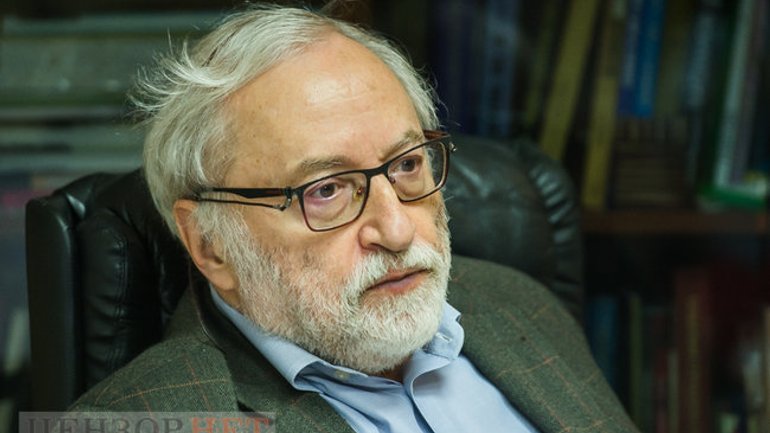"Ukraine is not on the world map of anti-Semitism", - Joseph Zisels

This was stated in an interview with the media outlet Censor.net by the Soviet dissident and well-known human rights activist, co-Chairman of the Association of Jewish Public Organizations and Communities (Waad), Joseph Zisels.
In response to the statement by the Israeli Ambassador, Mr. Lyon, that he sees an increase in anti-Semitism in Ukraine, and therefore proposes to introduce the definition of this concept in Ukrainian legislation, Joseph Zisels has stressed that since 2017 no physical attack has been made on the grounds of anti-Semitism in Ukraine, which is unique in the world context.
According to him, such statements by the Israeli Ambassador run counter to the results of the monitoring (Waad of Ukraine), which got Israel to agree with its characteristics of the phenomenon of anti-Semitism in Ukraine: “it (this phenomenon - ed.) has minor manifestations and generally decreases.”
On this occasion, Joseph Zisels has said:
“Ukraine has not adopted the definition of anti-Semitism proposed by the International Holocaust Remembrance Alliance. The main element of this characteristic is the hatred of Jews. I have been monitoring cases of anti-Semitism for 30 years. Now we have the best specialist in Eastern Europe for monitoring the life of national communities in Ukraine, Vyacheslav Likhachov, and I fully trust him as regards the definitions. We treat anti-Semitism in the same way as European experts do. Two criteria determine its manifestation: either physical attacks based on hatred or the language of hostility on this ground.
In order to understand Ukraine's place in the overall picture of the world in the aspect of anti-Semitism, we must compare its former and current situation as well as compare it with other countries, especially with the neighboring ones. We note that the greatest manifestations of anti-Semitism and xenophobia in Ukraine took place in 2005-2007. For example, back then, we recorded up to 600-700 hate speech cases a year in the form of various articles and publications. Then this statistic plummeted, and somewhere in 2010, it reached ten publications a year. Today we have almost stopped recording it.
Therefore, more important for us are hatе crimes, i.e. attacks based on hate. We examine each case for anti-Semitic content. That is, not every attack on a Jew is anti-Semitism, because there may be domestic fights or attacks with the purpose of robbery.”
According to him, 14 cases of vandalism based on anti-Semitism were recorded in Ukraine last year. This is two more than in 2018. That is, within the margin of error. In 2005-2007, there was an average of 8 anti-Semitic attacks per year. Since 2017, there has not been a single case of physical hate attacks in Ukraine in the aspect of anti-Semitism.
“This situation is unique on the global scale,” Joseph Zisels summed up.









